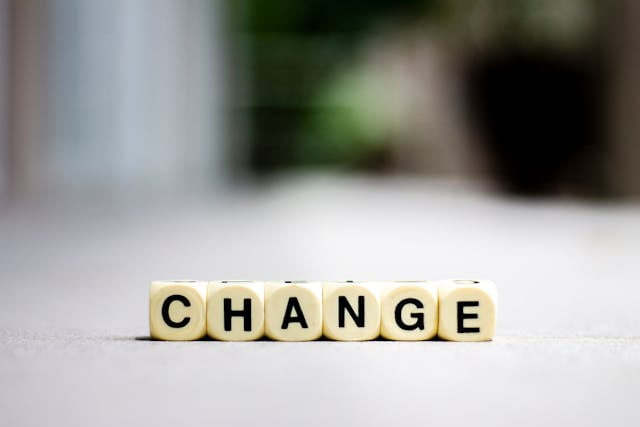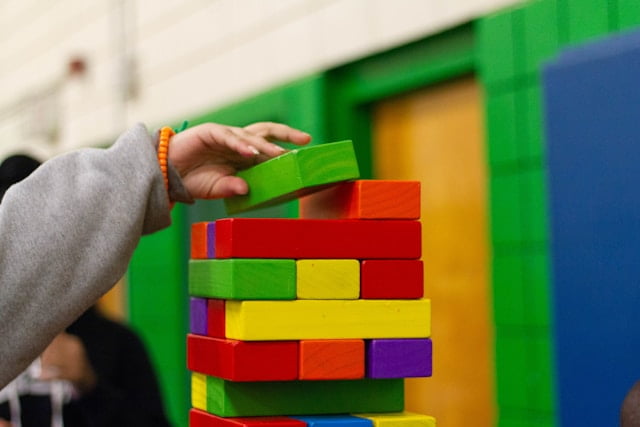Procrastination is when we engage in irrational delays to action, and that delay has a meaningful consequence. It is something that many people do. Luckily, it’s also a habit that it is possible to change.
Summary by The World of Work Project
Procrastination
Procrastination, or putting off actions we know we should do, is something we can all relate to. Who hasn’t panic bought gifts for someone at the last minute, rushed to hand in a piece of work on Friday afternoon or cleaned the house before starting some coursework?
The word itself, “procrastination”, comes from the Latin “procrastinare“, which means to put off until tomorrow. It’s also linked to the Greek word “akrasia“, which means to “do something against our better judgement”.
In our own explanation of what it means, we combine these two factors of “putting off until tomorrow” and “doing something against our better judgement” with a third. We say that for something to be procrastination, it also needs to have a meaningful consequence. Thus, procrastination is “when we engage in irrational delays to action, and that delay has a meaningful consequence”.
It’s worth noting that many people who procrastinate feel bad about doing so. They may feel guilt, self-blame, low self-worth and other negative emotions. Many of us who procrastinate recognize that doing so makes us feel pretty low. So this begs the question. If we know putting things off is unhelpful for us, and makes us feel bad, why do we do it?
Why do we Procrastinate?
Many people think that procrastination is a procedural problem. Or that it’s to do with lack of knowledge. Perhaps we don’t have the time management tools we need to structure our work. Or perhaps we don’t know what our real priorities are. However, in most instances, the reasons we procrastinate have nothing at all to do with time management. Instead, the reasons we actually procrastinate are emotional and psychological.
In most instances when we’re procrastinating what we’re actually trying to do is to manage negative feelings that arise when we’re confronting specific tasks. We’ve all felt the up-welling of negative emotions when we think about doing certain things. I’m sure most readers can remember a time when even thinking about starting a piece of work caused a flood of negative emotions.
These negative feelings can range from boredom through to self-doubt, insecurity, anxiety or even things like shame. In general they are unpleasant, and can be overwhelming. In many instances the reason we procrastinate has nothing to do with the actual task. Instead, we procrastinate as a way to avoid these negative emotions and feelings. What we’re doing is robbing from our future self, to avoid having to face these emotions in the present.
For example, many people who procrastinate are perfectionists. Or they may have strong underlying believes that they are only as good as they work that they produce, that they are only valued and liked by others if they produce good work. If this is the case, someone might feel an up-swelling of fear, uncertainty, self-doubt or shame when they think about taking on a new piece of work.
They might subconsciously feel that they can’t do a good enough job to satisfy their sense of what good enough is, and that consequently they may no longer be valued. If this is the case, it might feel better to procrastinate and not really try, than to try and risk coming up short. It’s better to face the guilt of procrastination and not really try, than to try and risk discovering we’re not as good we think we need to be. If we never really try, then we can never really fail.
Of course, there may not be a single reason for our procrastination. Each of us may have a range of reasons, and they may vary for the different tasks that we procrastinate.
What we Tell Ourselves
In many instances, we don’t acknowledge, even to ourselves, that we procrastinate to avoid negative emotions. Instead, those of us who procrastinate, often create different narratives that help reinforce our behaviors and protect our emotions.
For example, many people will explain that they need time pressure in order to perform well. Or they might say that delaying the start of a task won’t really have any impact on the final output. Similarly, they might say that they need to be in the mood for a task, in order to do it well.
At a more subtle level, those of us who procrastinate also tell ourselves that we’re doing a great job and saving the day when we work hard and late to finish something. By glorifying this type of work, we boost our self esteem. Of course, we created the crisis as well, but we don’t often focus on that side of our behaviors.
What Impact Does Procrastination Have?
As noted above, many procrastinators tell themselves that procrastination has limited negative impacts. These are limited impacts on the quality of work produced, on their own wellbeing and on their peers, family members or other stakeholders.
However, in reality, procrastination often does actually have a negative impact on all of these parties.
In a work context, when we procrastinate we over create stress and anxiety for those that we work with. In many instances we can also cause them extra work as they need to adapt and flex to work around our delayed delivery. Ultimately, our procrastination also often means we produce a lower quality of work than we would otherwise have produced. Our peers will accept this at times and for some time, but they will not do so forever.
Our procrastination also affects us as individuals. As we said at the start of this post, procrastination often leaves us feeling a bit rotten. This isn’t, in the long term, a great thing to do. It can be stressful and damage our self confidence and self-esteem, as well as lead to insomnia and physical ailments.
It’s worth noting that procrastination can also significantly damage our relationships. In some instances it can significantly damage our career prospects as well.
Of course, many of us already know this, which makes it all the more complex of a habit to address.
How can we Procrastinate Less?
Changing our habituated behaviors isn’t easy. Particularly when those behaviors protect us, at least in the short term, from unpleasant feelings and emotions. We can, though, learn to procrastinate less. We don’t cover these points in detail, just consider this a starter.
Awareness and Mindfulness
Increasing our self awareness, acknowledging that we procrastinate and recognizing when we are doing so is the starting point for being able to change. Try and stand above your thoughts and feelings and acknowledge them without being caught up in them. Simply note to yourself with interest that you’re starting to procrastinate, then decide what to do about it.
Self Compassion
The negative emotions that lead us to procrastinate often arise because we are, in some ways, hard on ourselves. We fear not being good enough, or liked enough, or valued enough. In many instances these fears come from within. If we’re kinder to ourselves, then these factors and fears may have less of a hold on us.
Speaking About Procrastination
Procrastination is often a behavior that we recognize in ourselves, but which we keep private. It can be a bit of a dirty little secret. The more private we keep habits like this, the easier it is to perpetuate them. One way to start the process of changing these habits is to acknowledge them and discuss them with a trusted friend, colleague of boss. Peer support can be a powerful tool when it comes to changing these habits.
Habit Replacement
While procrastination is focused on our emotions and psychology, it is also a habituated behavior. While simply breaking habits is very difficult, it’s possible to modify and replace our habits. We can do this using knowledge of how habits work, and the habit replacement loop.
Task Re-framing
In many instances we create our own sense of what a task is, how significant it is and what impact it will have. We may be creating tasks for ourselves that feel too daunting to face into well. Luckily, we also have control to change how we frame things. For example, instead of framing a piece of work as “it needs to be a finished product”, we could change it to be “I need to get things started for a review”. These two ways of framing can lead to similar outputs, but can have hugely different emotional impacts.
Coaching
Personal coaching is a helpful way for individuals to uncover some of the root causes of their procrastination and to replace some of their less helpful habits. It’s hard to face into some of our emotional concerns and fears on our own. Sometimes a guiding conversation can help us explore our underlying fears and replace them with new, rational and helpful beliefs.
If you’re looking for a coach to work with on procrastination, we’d recommend working with Dr. Richard MacKinnon’s team. He was our guest on our podcast episode on this subject, and his team provides a range of coaching which may help.
How can we Help Others Procrastinate Less in the World of Work?
Many of us will have spent time with people who procrastinate in the world of work. They may be our peers, they may work for us, or they may even be our bosses. While it might be difficult to open a conversation about procrastination, once start to speak about it there are things we can do to help people procrastinate less. Again, this list is just a starter.
Empathize
If someone speaks to you about procrastination, it’s helpful to be considerate and empathetic. This can be a difficult conversation, and the root causes of procrastination are often unpleasant, negative emotions. The help people progress and change their habits, we should connect with them, respect them, acknowledge their desire to change and support them.
It’s a Behavior, not a Person
It’s important to separate the person from the behavior. We can all procrastinate at times and develop a habit of procrastination. However we are all people who can change and who are so much more than simply that habit. In our conversations we can discuss habits and behaviors of procrastination, but we should keep them separate from the core identity of the person.
Be Clear of Impact
It’s important to be clear about the impact that someone’s habit of procrastination has on you, your work or your team. As we said earlier, many people who procrastinate convince themselves that it doesn’t really have any impacts. To help them see the impact it does have, we need to be honest with them and treat them like adults.
Break Tasks Down
If you’re a leader working with someone who procrastinates, it might be worth looking at how you structure tasks. If tasks are large and ambiguous, they may be more likely to trigger procrastinating behaviors. Where possible work to break larger deliverables down into smaller, discrete, accessible and unintimidating tasks.
Create Safe, Inclusive Cultures
As an overarching point, creating psychologically safe and inclusive cultures may help individuals change their procrastination habits. In safe environments, with fewer social threats, individuals may feel fewer negative emotions about their tasks, and may find it easier to open up and talk about them too.
Learning More
Our posts on self-talk and positive thinking may be useful. As procrastination is a habit, our post on the habit loop might also be helpful.
You might also enjoy our podcast on procrastination:
The World of Work Project View
We have been guilty of procrastination many times. And we’ve worked in teams where procrastination occurs regularly. We know the impact that it can have on our performance, but we also relate to the impact it can have on how we feel. Given this, we stress the importance of being empathetic when discussing procrastination.
One thing that does stand out to us in relation to procrastination is the fact that many people who procrastinate justify why they do it. They explain it away, saying that they are being rational and making better decisions. They may also be unaware of the impact it has on them, or on others. This means that many of us who procrastinate, don’t really acknowledge that we do so, or the impact that it has.
In our experience, overcoming this is hard. It’s important to be empathetic in these conversations, but it’s also important to be clear about the impacts their procrastination has. These are the impacts on them, and on their stakeholders and colleagues.
Like so many things of this nature, admitting that procrastination causes us a problem is an important first stage. Openly discussing this with others, asking for help and working towards a goal can help us make progress. It’s very possible to learn to procrastinate less, so there’s every reason to be positive about trying to do so. Good luck!
How We Help Organizations
We provide leadership development programmes and consulting services to clients around the world to help them become high performing organizations that are great places to work. We receive great feedback, build meaningful and lasting relationships and provide reduced cost services where price is a barrier.
Learning more about who we are and what we do it easy: To hear from us, please join our mailing list. To ask about how we can help you or your organization, please contact us. To explore topics we care about, listen to our podcast. To attend a free seminar, please check out our eventbrite page.
We’re also considering creating a community for people interested in improving the world of work. If you’d like to be part of it, please contact us.
Sources and Feedback
This article is based on personal reflections and our podcast conversation with Dr. Richard MacKinnon.
We’re a small organization who know we make mistakes and want to improve them. Please contact us with any feedback you have on this post. We’ll usually reply within 72 hours.






